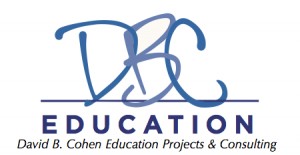Originally published at my EdWeek Teacher blog, Capturing the Spark (4/4/16).
I only taught summer school one year. That was enough to dissuade me from future efforts to teach a one-semester high school English class in four or five weeks. Still, I did take away one enduring lesson relating to teaching and learning. A student in my summer school class had also been in my class during the school year, and barely managed a grade of D. Our time together in summer school was much more productive. When she could concentrate on English alone, she quickly addressed some gaps in her learning, sharpened her focus, and without the competing demands of other classes, emerged with a well-deserved A in English.
As teachers, we are also pulled in many directions at once during the school year, and know that trying to learn anything well can be a challenge when we try to learn everything at once, without enough time.
American teachers are hungry for more time and opportunity to learn, but time is limited for collaboration and professional learning. Given the limitations of our professional development efforts in general, I’m wondering if it’s possible that we’d be better off with even less. What if we could concentrate on one thing at a time, like my former student in summer school? What if we could spend more time learning by doing – like our students experimenting with coding or engineering – instead of trying to assimilate a steady stream of new information before we’ve had a chance to use what we’ve already received?

EdCamps offer a chance to pursue learning on our own terms; EdCampSFBay shown here.
I’ve been an enthusiastic proponent of improving professional learning over the years. In my school and district, I’ve participated in a variety of efforts to expand options, especially teacher-led activities. I think this approach has a variety of benefits, helping us identify and address our learning needs effectively, sustain our focus, and build our professional capacity within schools and districts. In my last blog post, I also stressed that teachers need new challenges that engage us along with our students. We are not at our best modeling lifelong learning if we’re no longer learning. We are ill-equipped to help students understand a so-called 21st century workplace if we don’t work in one, if we lack opportunities to collaborate, create, and engage in critical thinking about our work.
But if you’re an elementary school teacher in the U.S., you might not even have daily prep time, let alone embedded time for professional learning. If you’re a secondary school teacher, maybe you have more prep time, though the amount is often just barely enough for the stated purpose – preparation. Job-embedded professional learning time is insufficient for almost everyone.
That doesn’t stop us from piling on the expectations for teachers, however. We’re making transitions to new standards, improving our use of formative assessments, attempting to glean something useful from “data” of all sorts, learning and integrating technology, diving into mindfulness and social-emotional learning, trying out project-based learning and integrating new tech tools and learning management systems. Those systems enable our students and parents to monitor every fluctuation in grades and to communicate regularly about every issue that arises, so email consumes more of our time. And don’t forget the meetings.
So here’s a radical idea: what if we gave all returning teachers the option to “pause” professional development for a year? I propose that in 2016-17, no teacher should be required to attend a workshop, conference, or training session (unless it’s relevant to student safety). Stop controlling the content and pace of our professional learning, and give us the time and breathing space to grow instead. I’m sure we all have enough readings and binders from trainings gone by, enough links and dowloads, and enough access to videos of exemplary lessons and teachers. Let us figure out what to do with the years’ worth of accumulated information.
To take advantage of this proposal, teachers would begin the school year by opting-in; those teachers who like their current professional learning opportunities and programs don’t need to do anything. Those who do opt-in would then provide their employers with a 100-word summary of what they intend to learn or improve during the year ahead. One goal is fine. Then, teachers should have the option to request support: workshops, materials, subscriptions, conference fees, etc. There’s no reason to withhold training that helps us meet one goal we’ve chosen to concentrate on. At school, let’s clear the decks, cut out any meeting that’s less than vital, and stop expecting teachers to improve at everything all the time.
Think of the possibilities. Instead of minimal, incremental gains across a variety of domains, offset by mental fatigue and burnout, we might just see some transformational learning in one really important aspect of our work. In my own teaching, I’ve spent years simultaneously tinkering around technology, dabbling in differentiation, taking a crack at Common Core, and pondering project-based learning. What if I could have a year to focus? After all, trying to improve everything at once hasn’t made me particularly gifted in any of these areas. What’s the risk in letting me aim much higher in one endeavor, and letting go of the minimal gains that might occur in other domains?
In many parts of our lives and careers, we’ve learned that less can be more. When do we apply that aphorism to our own professional learning? How about next year? Let it be resolved: we’ve had enough training, enough of being “developed” by others, and now we deserve the time and freedom to pursue one professional goal, develop one skill, method, or body of knowledge in sufficient depth to make a significant impact on our students’ learning.
